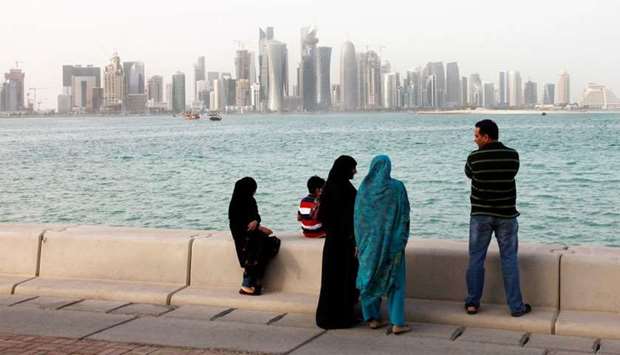Structural reforms such as improved contract enforcement and minority protection could support foreign direct investment (FDI) and increase economic growth in Qatar by as much as one percentage point, according to the International Monetary Fund (IMF).
Doha should also develop a comprehensive strategy to attract foreign investment and pay attention to developing domestic technological capacity, the IMF said in its latest Article IV consultation report with Qatar.
Highlighting that the foreign partners can play a big role in supporting entry into new sectors, it said Qatar’s Second National Development Strategy identifies FDI as an important contributor to diversification.
Countries looking to adopt technological and methodological advances in sectors new to them have a significant advantage: they can learn from others, it said, adding at various points in their histories, the US, Germany, Japan, South Korea, and China have all learned from other countries.
Working with foreign partners, by inviting FDI and entering into joint ventures with foreign leaders, can be crucial for entering new sectors and improving domestic technological capacity, according to the Bretton Woods institution.
Doha has some experience with learning through joint ventures in the gas sector; over time Qatar Petroleum has increased its own technological and investment capacity.
Although Qatari Investment Law No 1 of 2019 stipulates that foreigners can now invest in any sector excluding banks, insurance, and commercial agencies, even outside special economic zones (SEZs), a comprehensive communications campaign is needed to ensure that all potential investors are aware of this change, the report said.
Similarly, plans to facilitate access to finance in priority sectors should be explicitly communicated, it added.
"Once foreign investment is attracted, it is important to integrate the resulting enterprises into the Qatari economy to facilitate improvements in technological capacity throughout the economy," IMF suggested.
Highlighting that deliberate investments in human capital, targeted at priority sectors, are essential for developing expertise; the IMF report said development of human capital is an essential component of building valuable know-how in advanced sectors. Indeed, productivity has been declining in Qatar, and improving productivity through improved educational outcomes is important.
"To succeed, plans to prioritise specific sectors must be accompanied by targeted investments in human capital linked to the same sectors...While general improvements to the education system are also needed, Qatar should ensure that the specific skills needed for priority sectors are available in the labour market," it said.


